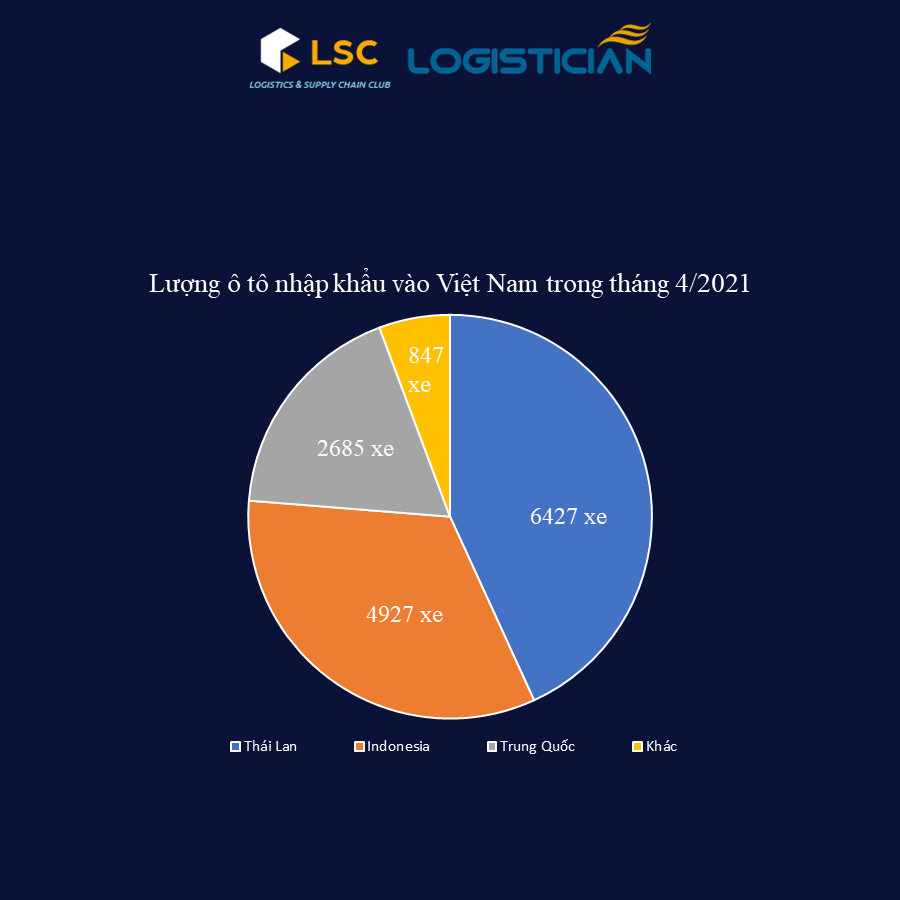In the ASEAN region, Vietnam is the largest importer of Thai pickup trucks and passenger cars. According to General Department of Customs statistics, approximately 15,000 CBU cars were imported into Vietnam in May 2021, totaling 341 million USD; this represents an increase of 0.8 percent in volume and 10.1 percent in value over the previous month.
Previously, in April 2021, the customs office recorded a total of 14,886 imported cars of all types registered, mainly from three major markets: Thailand (6,427 vehicles), Indonesia (4,927 vehicles), and China (2,685 vehicles). The total number of cars imported into Vietnam came from these three markets, accounting for 94% of the total number of cars imported.

Each car in May 2021 reached a value of more than 22,700 USD/ unit, up about 10% in value from the previous month, indicating that car importers are bringing home more expensive cars. In the first five months of 2021, the import turnover of CBU cars reached 65,161 units, worth USD 1.462 billion; an increase of 76.5 percent in volume and 78.3 percent in value over the same period in 2020.
Pressure on automakers to change
When Vietnam implements the emission standard at Euro 5, manufacturers who are unable to adjust to this new environmental standard will face the risk of reduced sales.
Surapong Paisitpatanapong, Vice President and Spokesperson for the Federation of Thai Industries (FTI), stated: “We are concerned that auto exports will be severely harmed. However, FTI cannot predict the extent of the impact of this regulation at this time.”
However, Mr. Pisit Rangsaritwutikul, President of the Thai Automotive Institute (TAI) under the Ministry of Industry, said that the impact of this regulation will be negligible because he believes that the two governments can negotiate to find a solution. A recent meeting between the Thai Automotive Institute (TAI) and several car manufacturers showed that many businesses are ready to produce cars that can even meet Euro 6 emissions standards.
According to information from the Thai Industrial Standards Institute (TISI), the emission standard at Euro 5 will be presented by Thai officials during the meeting on Technical Barriers to Trade of the National Trade Commission in November of this year.
One issue now is that local refineries that produce Euro 4 fuel must still adjust output to produce Euro 5 fuel. Refineries may need another 5-6 years to produce Euro 5 fuel. The National Environment Commission announced last year that Thailand intends to implement the Euro 5 emission standard on January 1st, 2024.
Van Anh













